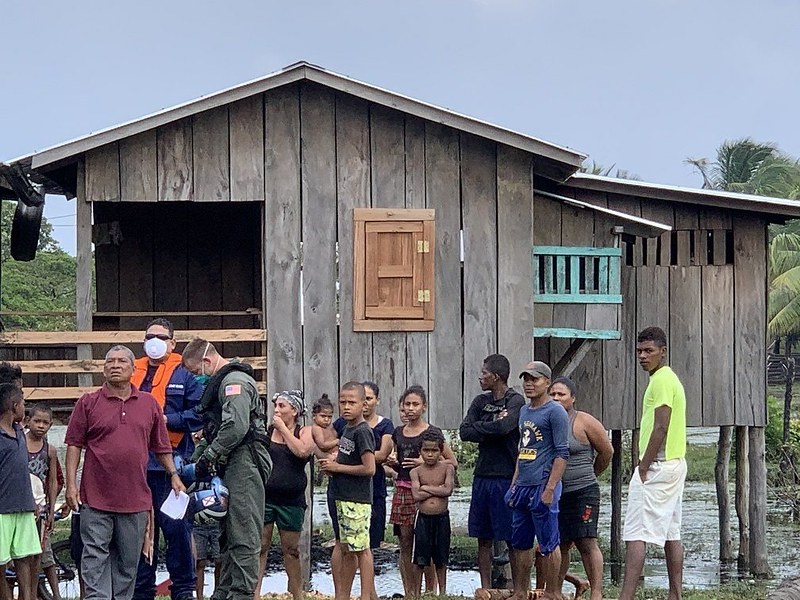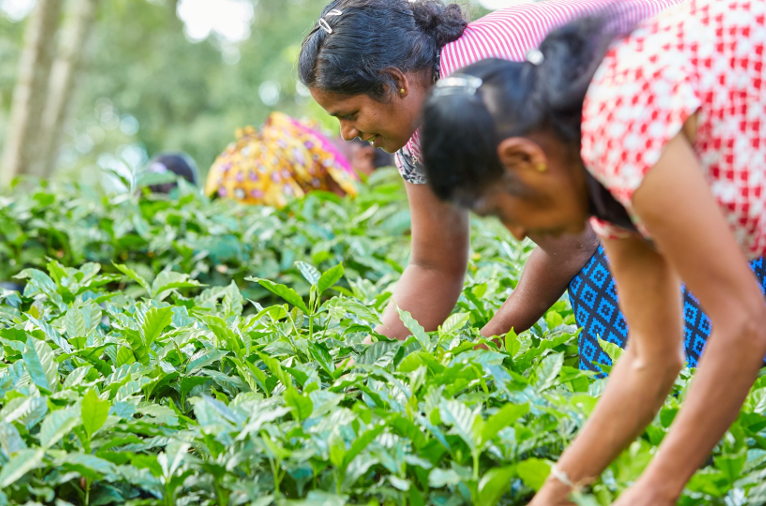Any work to achieve human-rights gains will be upended unless we address our climate and biodiversity crises.
In October the UN Human Rights Council voted to recognize the right to a safe, clean, healthy and sustainable environment as a human right. Notable among the dissenting voices was the United Kingdom, which eventually begrudgingly voted in favor, while stressing the fact that no country would be legally bound to the resolution’s terms. Four member states — China, India, Japan and Russia — abstained.
This resolution was long overdue. Air pollution alone kills an estimated 7 million people every year, according to the World Health Organization. Yet the resolution doesn’t go nearly far enough: It’s not legally binding, as the U.K. was keen to point out, nor has it been incorporated into any of the 70-plus human-rights treaties that the Universal Declaration of Human Rights has inspired.
Moreover, this issue goes beyond the concept of a safe, sustainable environment as a single human right. The fact is that all our most fundamental human rights rely on thriving natural systems — from the right to adequate food to a livelihood worthy of human dignity and even the right to life.
Speaking after the resolution was made, UN High Commissioner for Human Rights Michelle Bachelet said:
“[This is] about protecting people and planet — the air we breathe, the water we drink, the food we eat. It is also about protecting the natural systems which are basic preconditions to the lives and livelihoods of all people, wherever they live.”
She’s right. And yet across the world, the twin biodiversity and climate crises are coming together to form a full-blown human-rights emergency.
Climate
Fires, floods and storms are ravaging the world, growing in severity as global heating escalates. Over the past two years, unprecedented fires in Australia, Canada, the Mediterranean, Brazil, the United States and other countries have devastated homes and communities, leaving destitution and death in their wake.
In the record-breaking 2020 hurricane season, Hurricane Eta was followed under two weeks later by Hurricane Iota, together affecting more than 7.5 million people in Central America and leaving at least 200 dead. Nor are the impacts restricted to sudden-onset disasters. After a fourth year of drought, Madagascar is currently experiencing world’s first “climate change famine” with more than one million people now in need of emergency food aid.
The climate crisis is already seriously undermining human rights around the world, directly destroying people’s homes and livelihoods, and taking lives. But it is also a threat multiplier, compounding existing economic, political, and social stresses and driving a rising likelihood of violent conflict.

The Coast Guard supporting humanitarian assistance and disaster relief operations in Honduras after Hurricane Eta. Photo: U.S. Coast Guard, (CC BY-NC-ND 2.0)
Ecosystems
Alongside this grim reality, the world is facing its sixth mass extinction — this time human-caused — with the rate of species extinction already at tens to hundreds of times higher than over the past 10 million years. In 2020, the UN Convention on Biological Diversity reported that we had missed all 20 targets set to bring biodiversity loss to a halt.
Again, this puts human rights at risk. For example, as we empty our ocean of marine life through destructive and illegal fishing, coastal communities are losing not only their livelihoods but also essential food security as vital protein becomes more and more scarce. In a recent investigation, we found that basic human rights of Ghana’s fishing communities, including the right to adequate food, adequate standard of living and just working conditions, are under threat because of the government’s failure to tackle overfishing and illegal fishing by foreign-owned industrial trawlers. Over half of the 215 canoe fishers, processors and traders we spoke to reported going without sufficient food over the past year.
And of course, the COVID-19 pandemic represents the latest tragedy to emerge from our rampant exploitation of the natural world. As ecological degradation accelerates, animals that wouldn’t mix closely in the wild are brought into close contact with other species — and with humans. These conditions are perfect for the emergence of new and deadly viruses.
Injustice
Weaving through these crises and tragedies is the fact that the world’s poorest and most vulnerable communities invariably pay the highest price. This is an environmental injustice.Global heating has led to a 25% increase in inequality between countries over the past half century, as hotter, poorer countries tend to suffer the most from the actions of cooler, richer ones. The World Bank estimates that the COVID-19 pandemic pushed some 97 million vulnerable people into poverty in 2020.
At the same time, we’ve seen examples of initiatives, some perhaps well meaning, driving local communities, Indigenous peoples and the poor from traditional areas in the name of conservation or so-called protected areas. Such initiatives often completely disregard the importance of historic lands to the culture, history and well-being of communities. In our efforts to protect and restore our natural world, we must prevent this abuse of basic human rights and recognize the contribution that these communities have made and can make to genuinely effective conservation.
Equity and fairness are scarce in a world where the fundamental concepts of environmental justice are ignored, denied and circumvented.
Achieving true environmental justice and ending the twin crises of biodiversity and climate breakdown requires us to reassess our connection to nature and to recognize once and for all that humanity doesn’t exist outside the natural world.
We must make the right to a safe, clean, healthy and sustainable environment a universal, legally binding human right, starting with the UN codifying this new declaration into existing treaties, then making it legally binding on the national and international level. We are entirely dependent on nature for our most basic needs and fundamental human rights, and we all have a role to play in nurturing and protecting it.
The opinions expressed above are those of the author and do not necessarily reflect those of The Revelator, the Center for Biological Diversity or its employees.
Teaser photo credit: Communities in Sri Lanka adopting climate-smart agriculture. Photo: UNDP Sri Lanka, (CC BY-NC 2.0





